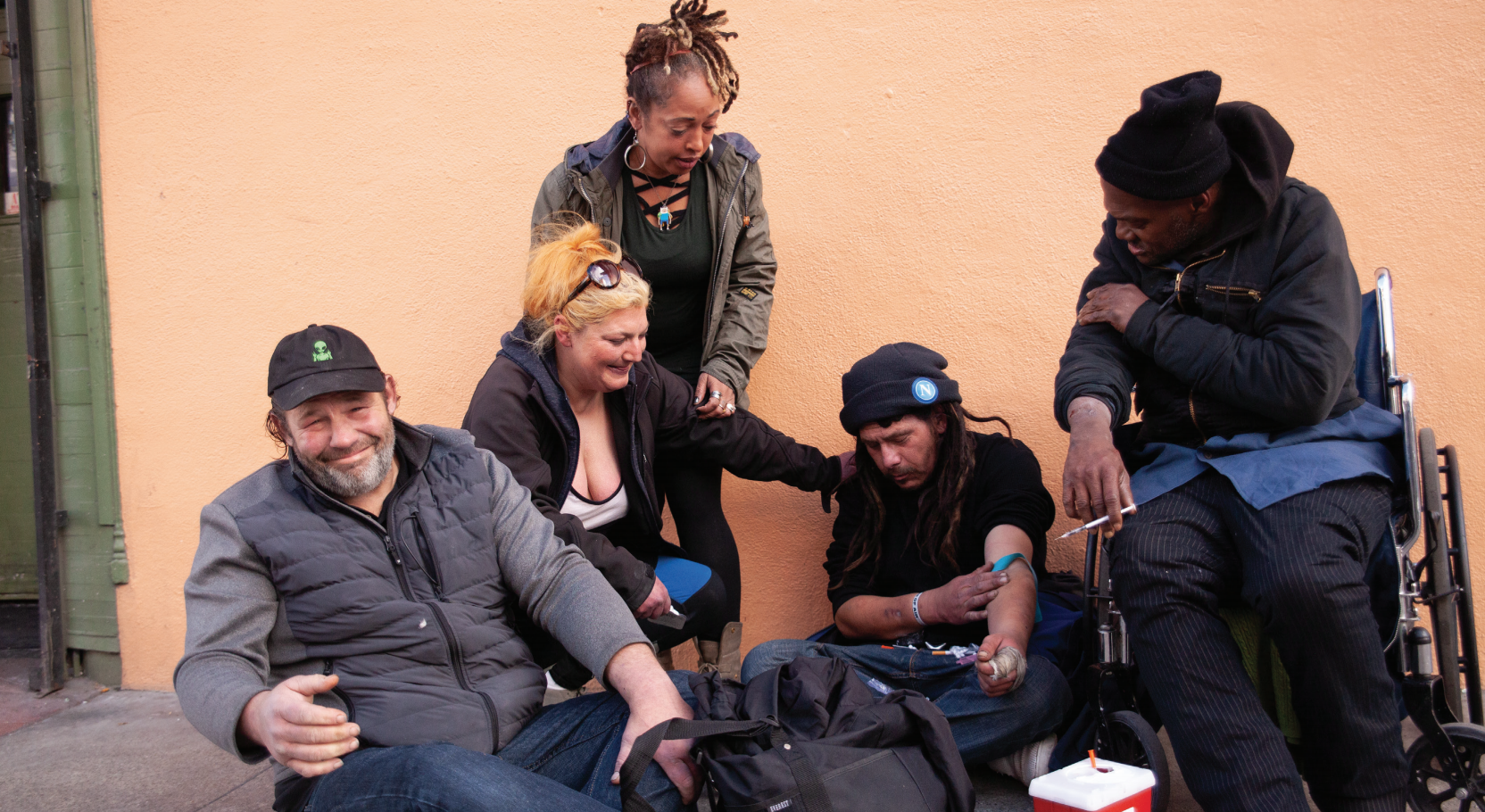Harm reduction is increasingly being assimilated into the medical establishment. Yet some people who use drugs continue to report that health information is more likely to be absorbed from community members and spaces than from healthcare professionals. This was one of the findings of a September 30 report from the Harm Reduction Coalition (HRC) on communicating harm reduction strategies in San Francisco—a city with one of the lowest fatal overdose rates in the country, in part because of its long history of community-based naloxone distribution.
“Peers are my most consistent source of information, especially older users that are still going hard but they’re alive. They’re alive for a reason, they’re doing something right,” a Black and Latina woman who mostly uses methamphetamine and requested anonymity told HRC. “They’re my heroes.”
In contrast, “very few mentioned obtaining health information from doctors or health care services,” stated the report, “and even when they did, they named specific harm reduction-practicing doctors in San Francisco.”
Receiving information from untrained peers does have its drawbacks. “I’d been hearing a bit about [fentanyl] for a while, but I’d say in the last two months or so, it’s being talked about everywhere, by everybody, but it’s hard to tell what’s the truth,” said a white genderqueer person who prefers stimulants and disassociates.
To provide greater clarity on how to stay safer when using drugs, HRC, with the support of the San Francisco health department, is launching a public awareness campaign on overdose prevention and response.
Know-Overdose-People-Who-Use-Drugs-and-Tips-combined
Posters from San Francisco’s new public awareness campaign by HRC.
Some promoted strategies in the “Know Overdose” campaign include, among other things, maintaining bodily necessities like drinking, eating and resting as much as possible; trying less risky ingestion practices, like inhaling or smoking rather than injecting; using with trusted people; and going slow.
While these tactics for staying safe are increasingly scientifically studied and medically recommended, the Harm Reduction Coalition emphasizes their origins with directly impacted people. “These are their faces and their strategies, stories and lives, and each person featured in this campaign has helped ensure the safety and survival of their fellow San Franciscans,” said Kristen Marshall, HRC’s DOPE Project manager.
Marshall added that the work of people who use drugs “often goes unnoticed by the community at-large, and they do it without notice or compensation, every day. Thousands of people survive their overdoses every year in our city because of people who use drugs and harm reduction workers.”
Screenshot from a “Know Overdose” poster by the Harm Reduction Coalition.





Show Comments